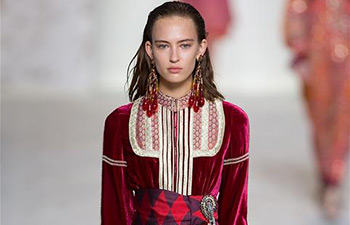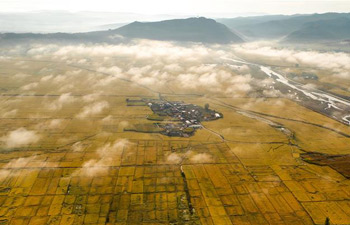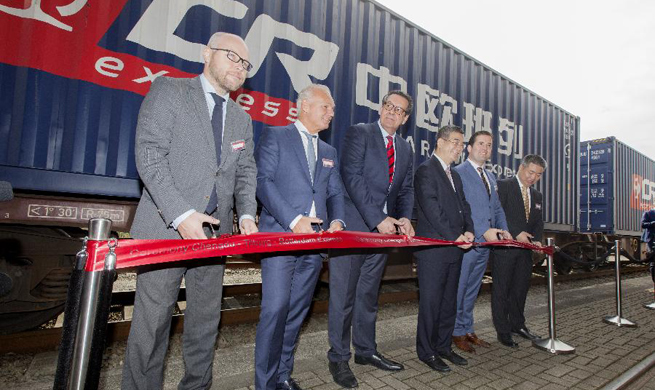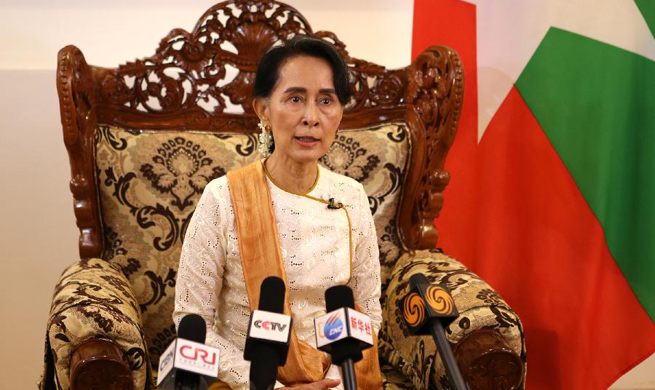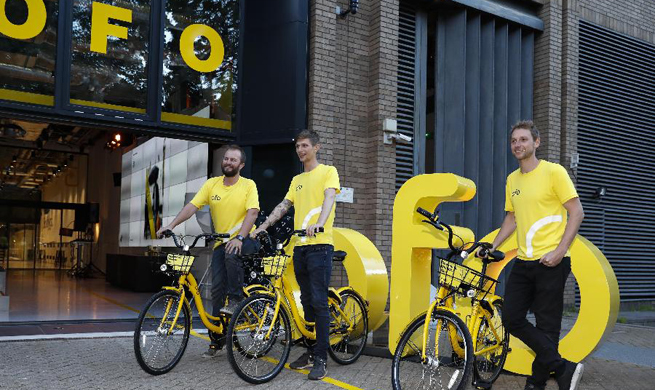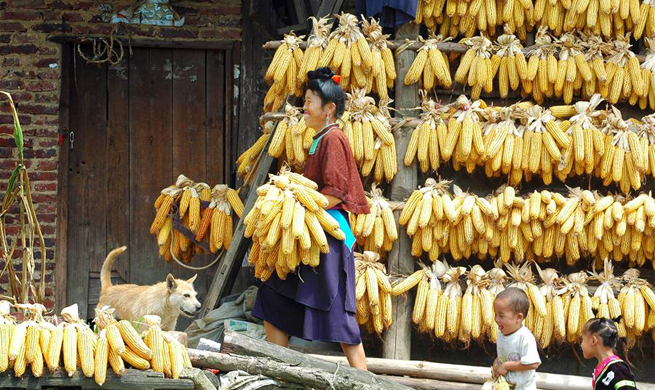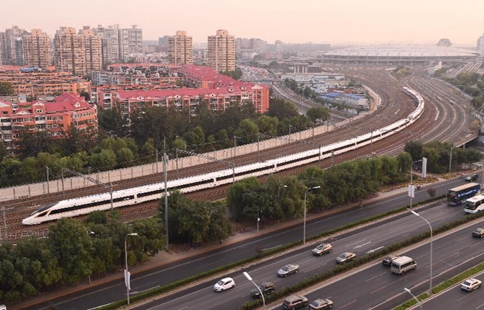BERLIN, Sept. 23 (Xinhua) -- The German federal election will be held on Sunday. According to various polling results, German Chancellor Angela Merkel's party is likely to win the most votes again.
The German election rule sets a five-percent-vote hurdle for parties to enter the Bundestag, or the Federal Parliament. Therefore, only the following parties are major players.
Christian Democratic Union (CDU)/ Christian Social Union (CSU)
The conservative bloc consists of Merkel's CDU and its sister party CSU which only operates in Bavaria. As the main conservative union in Germany, the CDU/CSU supports enterprises and opposes tax increase, but in recent years they shifted to left by focusing on social justice thus "eroded" some of support rates from Social Democrats. It traditionally attracts the self-employed, businessmen and entrepreneurs. Five of the eight German chancellors since 1949 are from the CDU. The Union is currently governing in a coalition with the center-left Social Democrats. It is currently polling at around 36 percent, much higher than that of the number during the refugee crisis in 2015.
The Social Democratic Party (SPD)
It is Germany's main center-left party and the junior partner in the outgoing CDU-led coalition. Founded in 1863, it is the oldest political party in Germany. Gerhard Schroeder is the last SPD chancellor (1998-2005). The party supports social justice and welfare state, with close links to trade unions. Led by former President of European Parliament Martin Schulz, the SPD is now in a coalition government with the Union. The party lost a traditional stronghold, North Rhine-Westphalia, in a regional election in May, and is currently polling at around 22 percent.
Die Linke (The Left)
It is the most leftist party represented in the German federal parliament formed in 2007. It is currently the largest opposition party. The Left aims at increasing government spending and taxes for the rich. It rejects involvement of German armed forces in foreign countries, and calls for international disarmament. It looks likely to win 9-10 percent.
Free Democratic Party (FDP)
The free-enterprise, pro-business party failed to enter parliament in 2013 for the first time. It promotes free markets and privatization and backs tax cuts, attracting many liberal-minded young business people in cities. The party has been in the federal government longer than any other parties, as the junior coalition partner of the CDU/CSU for four times. Now under a new leader, Christian Lindner, they are polling at about 10 percent.
The Alliance 90/The Greens:
Formed in 1993, the party focuses on the combination of market economy and decrees pertaining to nature and environment protection that must be monitored by the state. The Greens governed together with the SPD from 1998 to 2005 and is now polling around 8 percent.
Alternative fuer Deutschland (AfD)
The populist, eurosceptic and anti-immigration party -- which welcomed Brexit -- looks likely to enter the Bundestag after four years of its foundation and to become the first far-right party in Bundestag after 1945. The party was almost elected into Bundestag in the last federal election with 4.7 percent of votes. Gaining momentum during the refugee crisis and euro-crisis, the AfD is now represented in polling at around 10 percent.








